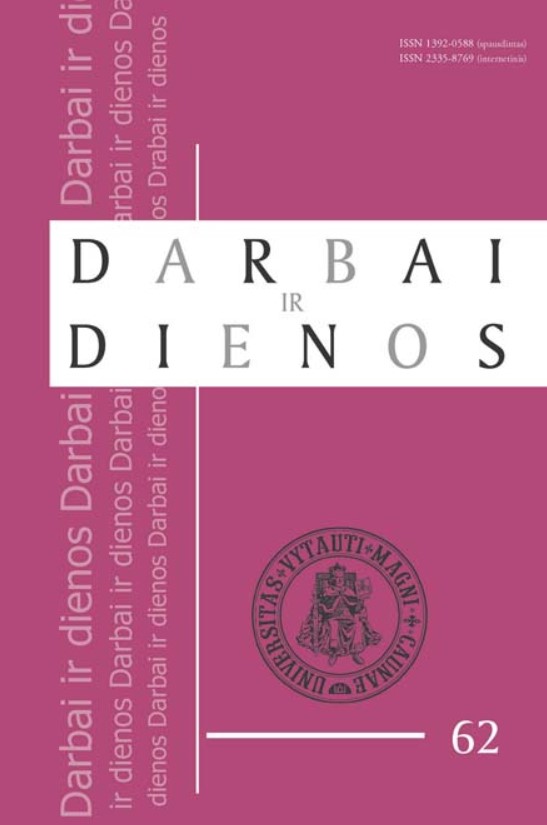RYTŲ EUROPIEČIO SINDROMAS ŠIUOLAIKINĖS (E)MIGRACIJOS NARATYVUOSE
THE EASTERN EUROPEAN SYNDROME IN CONTEMPORARY (E)MIGRATION NARRATIVES
Author(s): Laura LaurušaitėSubject(s): Comparative Study of Literature, Bulgarian Literature, Latvian Literature, Lithuanian Literature, Migration Studies, Theory of Literature
Published by: Vytauto Didžiojo Universitetas
Keywords: imagology; self image; hetero image; Eastern European; Soviet mentality; émigré literature; novel;
Summary/Abstract: Employing the notion of imagology as a general imitational principle in modern-day society (Milan Kundera) and the concepts of hetero-image, self-image, and imageme introduced by literary imagology (Joep Leerssen), this article focuses on literary representations of Eastern Europeans in the latest wave Lithuanian, Latvian and Bulgarian émigré narratives. The selected narrative corpus includes four émigré novels generated in Britain: Vilis Lacitis’ Stroika with the view to London (2010), Alek Popov’s Mission in London (2012), Aleksandra Fomina’s We visited the island yesterday (2011) and Zita Čepaitė’s The breeze of London (2013). In discussing several manifestations of emigrants from the post-communist bloc, the author of the article concludes that the inherited patterns of Soviet mentality determine a similar structure of characters‘ consciousness, identical personal values, and motivational mechanisms that bear witness to a common stock type “Eastern European”. This is a certain social type with an entire preconceived repertoire of stereotypical images describing a subject of post-Soviet descent. This subject appears in émigré narratives as an inferior working-class figure with low self-esteem, a person of no reputation guided by amorality and aggressiveness. People from the former Soviet bloc perceive themselves and are perceived by local British (Western European) natives mostly in negative terms. Although, at first glance, all the personal and national characteristics of homo postsovieticus appear to be negatively charged, in every unfavorable estimation there lay a positive imageme counterpart that can be activated at any given moment (e. g., passiveness/ faithfulness, self-humiliation/patience, primitiveness/honesty, etc.).
Journal: Darbai ir dienos
- Issue Year: 2014
- Issue No: 62
- Page Range: 229-244
- Page Count: 16
- Language: Lithuanian

